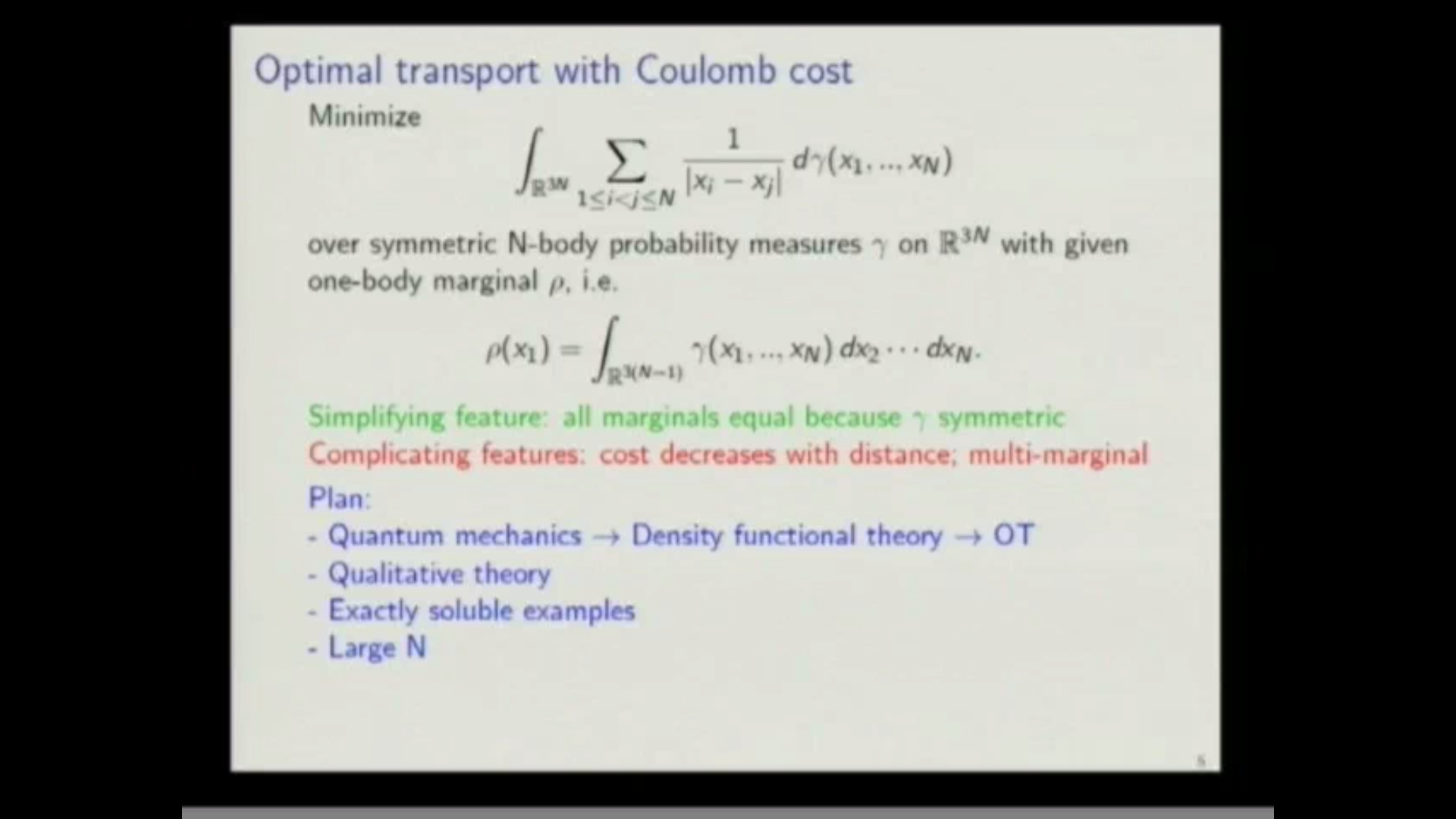Density functional theory and optimal transportation with Coulomb cost
Presenter
October 17, 2013
Keywords:
- optimal transport
- applied PDE
- geophysics
- inverse square laws
- density functional theory
- discretization of PDEs
- quantum chemistry
- density functional theory
- Coulomb interactions
MSC:
- 35-xx
- 35Qxx
- 35Q35
- 35Q74
- 35Q86
- 35Q93
- 76Dxx
- 76E25
- 76Wxx
- 76W05
- 76Y05
- 76Yxx
Abstract
Density functional theory (DFT) is a computationally feasible electronic structure model which simplifies full quantum mechanics and for which Walter Kohn received a Nobel prize in 1998. In the semiclassical limit, DFT reduces to a multi-marginal optimal transport problem [1]. Considerable insight into the limit problem had been built up, prior to our work, by physicists (Seidl, Perdew, Levy, Gori-Giorgi, Savin), who essentially developed a considerable amount of optimal transport theory without knowing they were doing optimal transport. The goal of my talk is three-fold (i) to explain the connection DFT--optimal transport and compare physicist's and OT theory approaches, for instance the Gangbo-McCann formula for the optimal map in terms of the Kantorovich potential is arrived at in an intriguingly simple way by physicists (ii) to discuss what is known rigorously about the limit problem, including -- justification of the formal semiclassical limit [1] -- qualitative theory of OT problems with Coulomb cost, including the question whether ''Kantorovich minimizers'' must be ''Monge minimizers'' (yes for 2 particles, open for N particles, no for infinitely many particles) [1,2] -- exactly soluble cases (N=2 with radial density; N=infinity) [1, 2] (iii) to present a natural hierarchy of further approximations of the limit functional related to representability constraints on the pair density which survive in the classical limit [3], and discuss the important (open) problem of characterizing N-representable pair densities.
